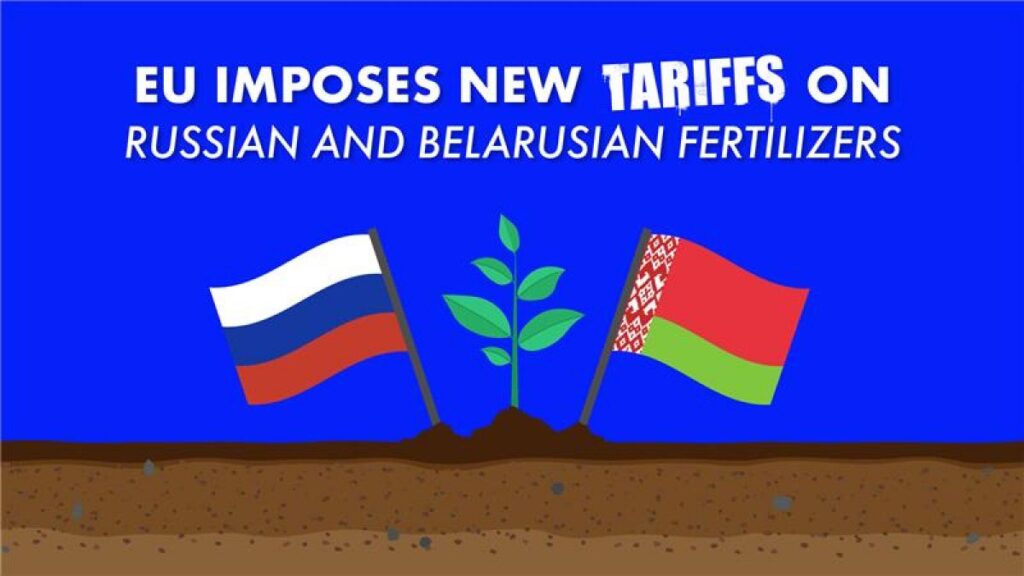Russia supplies 25% of the EU’s nitrogen fertilisers, worth €1.3 billion each year, but from 1 July these will be subject to tariffs ranging from 6.5% this year to levels close to 100% by 2028. The tariffs will apply to products from Russia and its neighbouring ally Belarus, which has facilitated military action against Ukraine. In addition, 50% tariffs will be imposed on agri-food products from both countries, such as meat, dairy, fruit and vegetables.
“There is a strong moral and strategic justification. Russia imposes a 23.5% export tax on fertilisers, which means that by buying these products, the EU is indirectly financing the war in Ukraine,” said Euronews reporter Gerardo Fortuna, who’s covered the topic.
“There’s also an environmental aspect, because the EU production of fertilisers has roughly half the carbon intensity of the Russian manufacturing of fertiliser. So, by importing this fertiliser from Russia, we also drive emissions,” adds Fortuna.
EU fertiliser producers are pleased with expectations of increased market share. Since Russia’s full-scale invasion of Ukraine in 2022, the sector has faced higher energy costs and has been unable to compete with cheaper Russian exports, leading to the closure of production facilities.
“Our producers have already lost a lot because of Russia. There is at least three million tons of idle capacity, compared to the eight million tons that the EU exported to other countries,” said Latvian MEP Inese Vaidere, from the centre-right EPP group, who steered the proposal through the Parliament.
Farmers fear being squeezed
Farmers fear having to spend more of their budget to purchase fertilisers as a result however. “There are some mitigation measures from the European Commission, but farmers don’t consider them adequate to deal with the expected price increase,” says Gerardo Fortuna.
To reduce the risk of price spikes, the block could eliminate tariffs on other fertiliser suppliers to the EU, such as the US, Canada, Oman, Morocco and Algeria.
“Since the beginning of the war in Ukraine, around €500 billion has been spent to help farmers. The European Commission monitors monthly price fluctuations and will know what to do,” said MEP Inese Vaidere.
On the other hand, the bloc will not impose tariffs on Russian exports to third countries, as they are crucial for some developing countries, such as Vietnam and Bangladesh in Asia, and Kenya and Tanzania in Africa.
Russia is the world’s largest exporter of fertilisers, with its main markets being Brazil, India, the United States, China and Indonesia. Gas is an essential ingredient for fertiliser production, so the EU is indirectly trying to target this Russian asset as well.
The EU justifies the measures on economic grounds, but also ethical imperatives, given the war in Ukraine.
Watch the video here!
Journalist: Isabel Marques da Silva
Content production: Pilar Montero López
Video production: Zacharia Vigneron
Graphism: Loredana Dumitru
Editorial coordination: Ana Lázaro Bosch and Jeremy Fleming-Jones
Read the full article here

